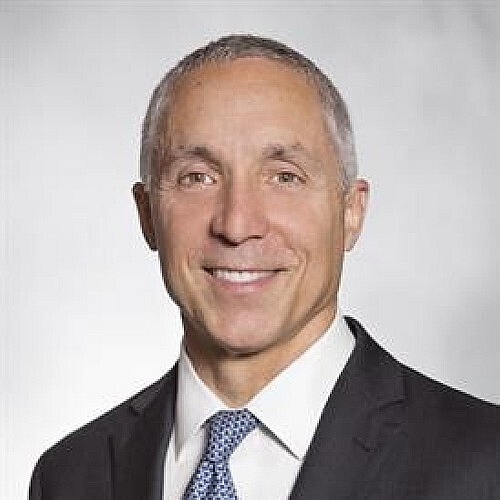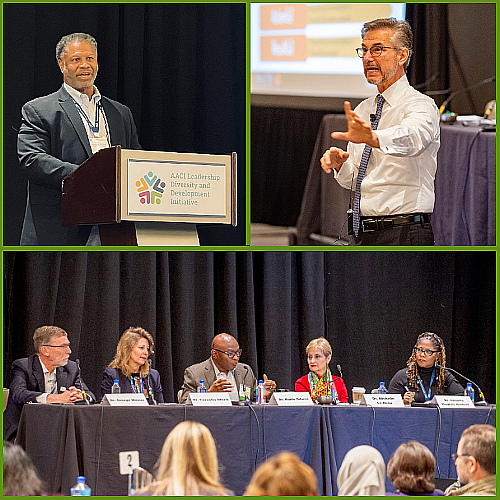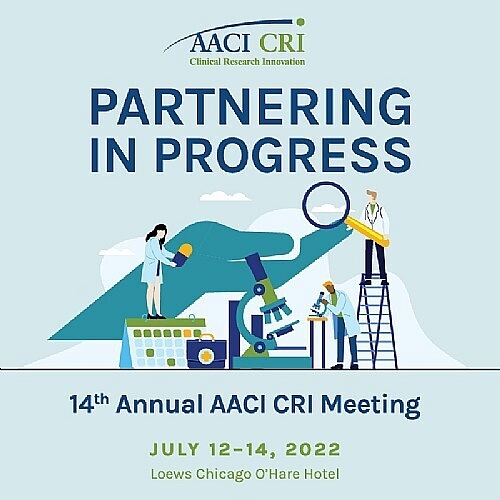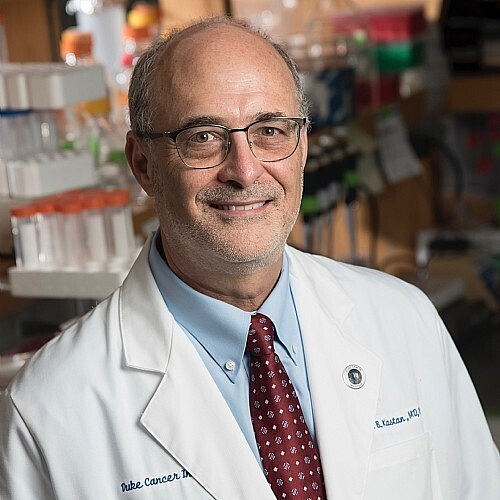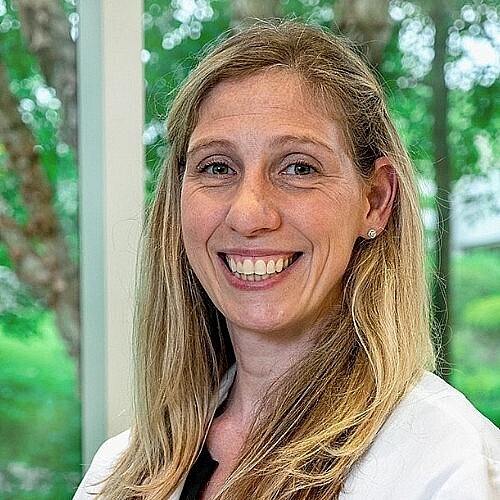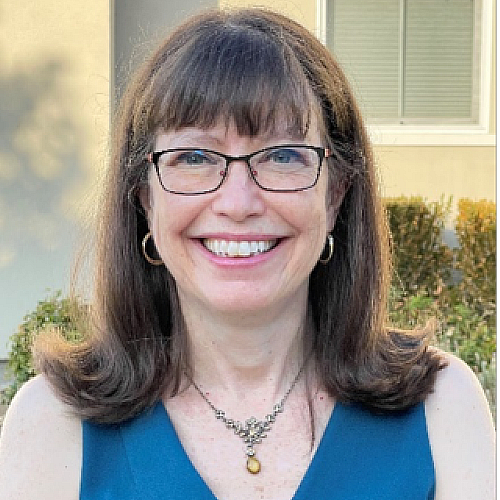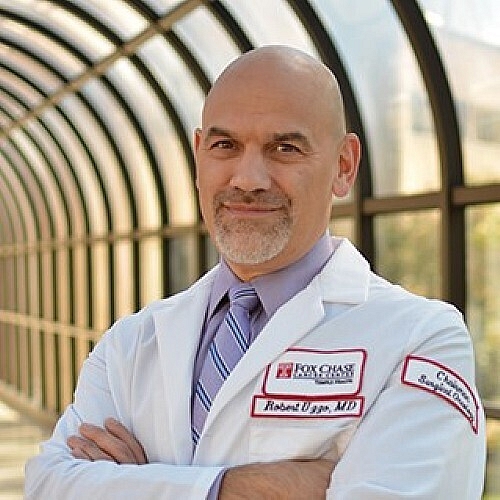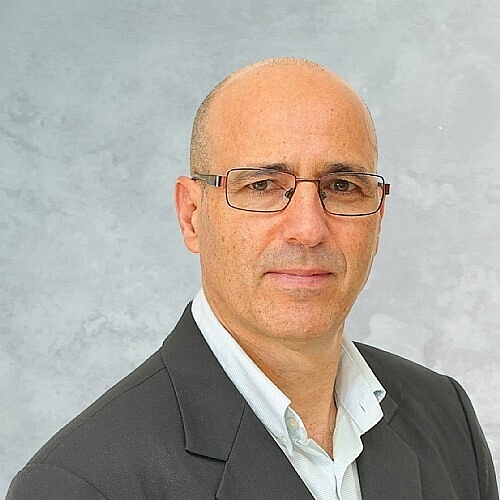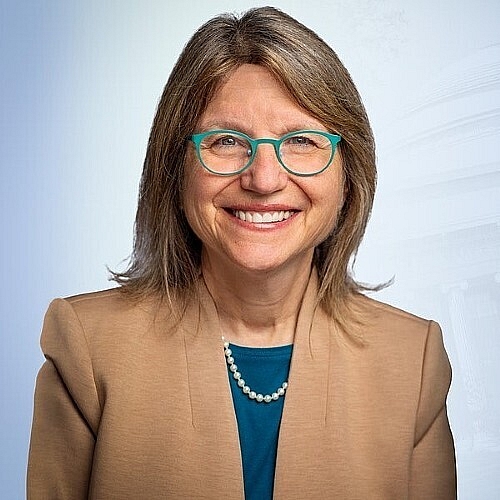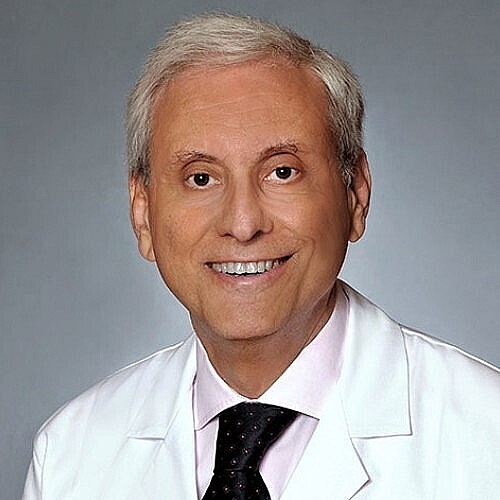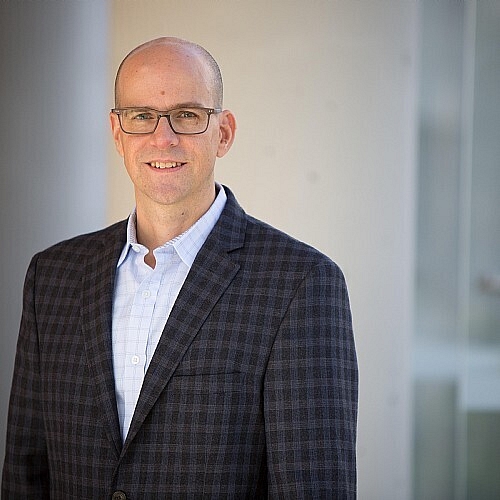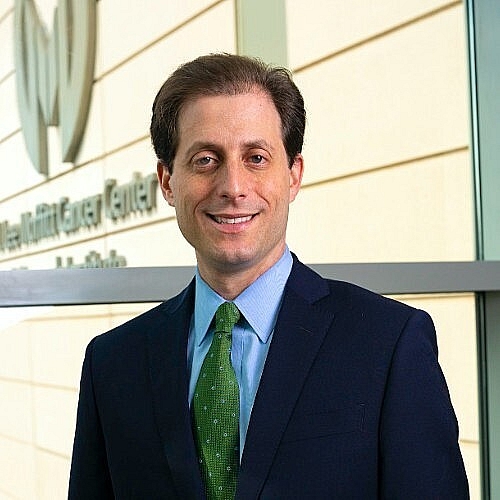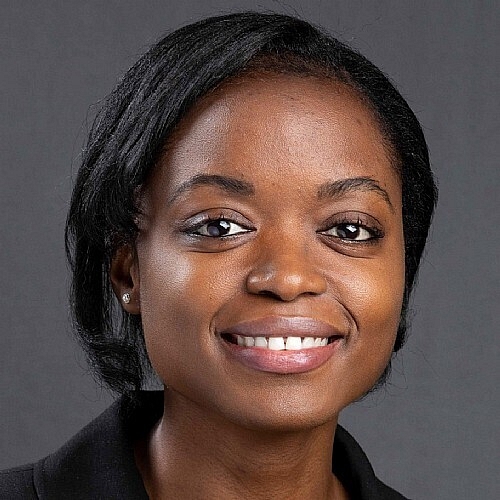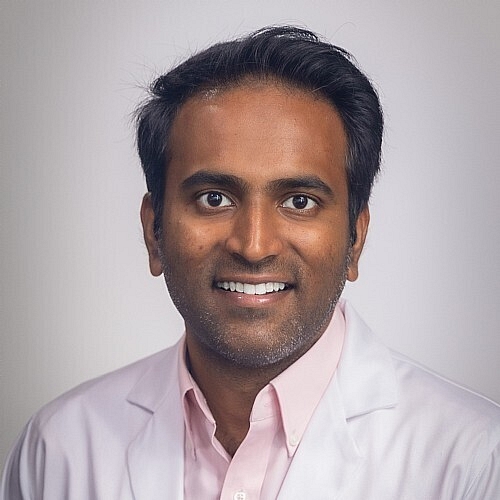Headlines
Califano Named New Director of Moores Cancer Center
Joseph A. Califano III, MD, has been named director of Moores Cancer Center at UC San Diego Health. He succeeds Scott Lippman, MD, who announced in November 2021 that he would be stepping down as director to lead the National Cancer Institute's PreCancer Genome Atlas.
Read More
Leadership Diversity and Development Initiative Conducts First Workshop
AACI hosted its first Leadership Diversity and Development Initiative (LDDI) Workshop on November 8-9 in Chicago. Dr. Caryn Lerman, AACI president and director of the USC Norris Comprehensive Cancer Center, welcomed nearly 100 participants from 78 AACI cancer centers. The attendees represented a diverse group of cancer center leaders as well as emerging leaders nominated by their centers. LDDI is Dr. Lerman’s AACI presidential initiative.
Read More
Catchment Area Research and Data Science Listserv Launched
December 1 marks the launch of AACI's Catchment Area Research and Data Science (CARDS) listserv. The goal of the new listserv is to build a supportive and collaborative community for those involved in cancer center data collection, analysis, and utilization. CARDS is for individuals from community outreach, biostatistics, cancer informatics and anywhere else in our cancer centers where this work is happening.
Read More
CRI Digital Abstracts and Posters Book Available
The 14th Annual AACI CRI Meeting Abstracts and Posters Book is now available to AACI members. The digital book features 74 abstracts from 28 cancer centers submitted for presentation at the CRI meeting this past July – the first in-person CRI meeting since 2019. Abstract topics spanned several areas of clinical trial operations, including quality assurance, community outreach and engagement, and trial start-up and activation.
Read More
News from the Centers
Kastan Named 2022 Failla Award Winner
Duke Cancer Institute, Duke University Medical Center
The Radiation Research Society has bestowed its highest honor—the Failla Memorial Lecture Award—on Michael B. Kastan, MD, PhD, executive director of Duke Cancer Institute. The 59th recipient of the annual award, Dr. Kastan reported a number of seminal discoveries demonstrating that the protein p53 is a critical mediator of how cells respond to DNA damage.
Read More
Porpiglia Inducted Into Philadelphia Academy of Surgery
Fox Chase Cancer Center, Temple Health
Fox Chase Cancer Center’s Andrea Porpiglia, MD, MSc, FACS, was recently inducted as a fellow into the Philadelphia Academy of Surgery. Founded in 1879, the academy is the oldest continuously meeting surgical society in the United States.
Read More
$3.7 Million Grant Aims to Increase Minority Accrual to Cancer Treatment Trials
Moffitt Cancer Center
Moffitt Cancer Center’s efforts to increase minority accrual to cancer treatment trials got a boost from the National Cancer Institute’s Connecting Underrepresented Populations to Clinical Trials U01 Grants Program. The five-year, $3.7 million grant will help the cancer center develop new digital tools and community outreach strategies to reach Black and Hispanic cancer patients and physicians in the Tampa Bay community.
Read More
Community Case Studies Engage Middle Schoolers in STEM to Reduce Health, Workforce Disparities
Winship Cancer Institute of Emory University
A $1.34 million Science Education Partnership Award from the National Institutes of Health will help Winship Cancer Institute scientists investigate whether problem-based learning, directly applied to case studies relevant to communities in Georgia, will more effectively help to increase diversity in the biomedical research workforce and reduce health disparities.
Read More
Researchers Receive NCI Grant to Increase Targeted Cancer Treatments to Rural Patients
The University of Kansas Cancer Center
Shellie Ellis, PhD, has been awarded a $1.2 million R01 grant from the National Cancer Institute (NCI) to test an intervention she and her colleagues designed known as TEAMSPORT (Multi-TEAM Systems Framework Precision Oncology Reflex Testing). The goal is to create a standardized approach to the ordering of genomic tests and adapt it for use in community cancer centers.
Read More
Attardi Receives Outstanding Investigator Award
Stanford Cancer Institute
Stanford Cancer Institute member Laura Attardi, PhD, received the National Cancer Institute Outstanding Investigator Award. Dr. Attardi's research will provide crucial new insight into how to modulate p53 pathways in therapeutic strategies for cancer.
Read More
Uzzo Appointed President and CEO
Fox Chase Cancer Center, Temple Health
Robert Uzzo, MD, MBA, FACS, has been formally named president and CEO of Fox Chase Cancer Center following a period of interim leadership. In addition, Dr. Uzzo will assume the roles of executive vice president, cancer services, for Temple University Health System and senior associate dean, clinical cancer research at the Lewis Katz School of Medicine at Temple University.
Read More
Gottlieb Joins MD Anderson as Vice President for Research
The University of Texas MD Anderson Cancer Center
The University of Texas MD Anderson Cancer Center has announced that Eyal Gottlieb, PhD, has been named the institution’s vice president for research. Since 2020, Dr. Gottlieb has served as director of the Rappaport Institute for Biomedical Research and vice dean of research for the Technion Faculty of Medicine.
Read More
Kornbluth Named President of MIT
Duke Cancer Institute, Duke University Medical Center
Duke University Provost Sally Kornbluth, PhD, has been appointed president of the Massachusetts Institute of Technology (MIT), beginning in January 2023. Dr. Kornbluth has been a member of Duke Cancer Institute since 1990. Her lab, which studied the regulation of complex cellular processes, closed when she assumed the role of provost in 2014.
Read More
Iavarone is New Deputy Director
Sylvester Comprehensive Cancer Center, University of Miami
Antonio Iavarone, MD, has made a decades-long commitment to finding better treatments for glioblastoma and other aggressive brain tumors. As the new deputy director of Sylvester Comprehensive Cancer Center at the University of Miami Miller School of Medicine, he will have opportunities to do even more.
Read More
Steidl Appointed Chair of Cell Biology
Montefiore Einstein Comprehensive Cancer Center
Ulrich Steidl, MD, PhD, has been named the chair of the department of cell biology at Albert Einstein College of Medicine. Dr. Steidl assumes his new position as Arthur Skoultchi, PhD, who has led the department for 24 years, steps down from departmental leadership. Dr. Steidl is currently deputy director of Montefiore Einstein Cancer Center and co-director of its Blood Cancer Institute.
Read More
Inaugural Associate Director for Cancer Workforce Equity Named
The University of Kansas Cancer Center
The University of Kansas Cancer Center has announced the appointment of Megha Ramaswamy, PhD, MPH, as its inaugural associate director for cancer workforce equity. In this newly created role, Dr. Ramaswamy will be responsible for developing a plan to diversify the cancer research and care workforce.
Read More
Rieger Named Vice President, Chief Innovation Officer
Moffitt Cancer Center
Jarett Rieger, Esq., MBA, has been named Moffitt Cancer Center’s new vice president and chief innovation officer. He will continue to oversee Moffitt’s Office of Innovation and Industry Alliances, which is focused on commercializing intellectual property. Rieger joined Moffitt in 2004 and has served as the manager, director, and senior director of this office before being promoted to the new role.
Read More
Cancer Surgeon-Scientist Joins Division of Surgical Oncology
UK Markey Cancer Center
The Division of Surgical Oncology is pleased to welcome Mautin Barry-Hundeyin, MD, to the UK College of Medicine Department of Surgery. Dr. Barry-Hundeyin joins the NCI-designated UK Markey Cancer Center as a surgical oncologist specializing in the management of hepatopancreatobiliary and gastrointestinal malignancies.
Read More
Cingam Joins UNM
University of New Mexico Comprehensive Cancer Center
Having completed his undergraduate and medical degrees in his native India before coming to the U.S., Shashank Cingam, MD, completed an internal medicine residency at Louisiana State University and then came to UNM Cancer Center in 2018 for a fellowship in hematology-oncology. Dr. Cingam recently joined the faculty at the UNM Comprehensive Cancer Center.
Read More
Researchers Find That T Cell Effector Programming is Regulated by the Mediator Kinase Module
Stanford Cancer Institute
Crystal Mackall, MD, and lead author Katie Freitas, a Stanford Immunology PhD candidate and Mackall lab member, have published an article demonstrating that the Mediator kinase module is a primary regulator of T cell effector programming.
Read More
Dietary Change Starves Cancer Cells, Overcoming Treatment Resistance
University of Michigan Rogel Cancer Center
A dietary change could be a key to enhancing colon cancer treatment, a study from the University of Michigan Rogel Cancer Center finds. One of the most important nutrient sensing molecules in a cell is called mTORC1. While mTORC1 is known to be hyperactive in colon cancer, the key question is whether colon tumors hijack nutrient sensing pathways to fire up the master regulator.
Read More
Study Reveals Pathways for Aggressive Prostate Cancer Subtype
Vanderbilt-Ingram Cancer Center
Cribriform prostate cancer is an aggressive subtype of the disease characterized by its histology, but little is known about its molecular pathways. Research from Vanderbilt-Ingram Cancer Center has revealed new information about these pathways, including potential therapies.
Read More
Novel AI Blood Test Detects Liver Cancer
Sidney Kimmel Comprehensive Cancer Center at Johns Hopkins University
A novel artificial intelligence blood testing technology developed and used by Johns Hopkins Kimmel Cancer Center researchers to successfully detect lung cancer in a 2021 study has now detected more than 80 percent of liver cancers in a new study of 724 people.
Read More
Study Shows Targeted Therapy for Pediatric High-Risk Hodgkin Lymphoma Reduces Relapse
Winship Cancer Institute of Emory University
A targeted therapy for children with high-risk Hodgkin lymphoma was shown to significantly reduce relapse rates when tested in a large multicenter clinical trial conducted by the Children’s Oncology Group and led by pediatric oncologists at Winship Cancer Institute of Emory University, Children’s Healthcare of Atlanta and Roswell Park Comprehensive Cancer Center.
Read More
Unraveling the Biology Behind Aggressive Pediatric Brain Tumor Reveals Potential New Treatment Avenue
University of Michigan Rogel Cancer Center
Researchers at the University of Michigan Rogel Cancer Center have identified a novel treatment approach to an aggressive type of pediatric brain cancer, using therapies already approved to treat cancer.
Read More
Cardiac Antigen Identified as Mechanism for Heart Complication With Immunotherapy-Related Myocarditis
Vanderbilt-Ingram Cancer Center
Myocarditis can occur in cancer patients treated with immune checkpoint inhibitors. Although the adverse event is rare, the mortality rate is nearly 50 percent. Now, researchers from Vanderbilt-Ingram Cancer Center have identified the mechanism for the deadly heart inflammation.
Read More
Developing Therapies for Treatment-Resistant Prostate Cancer
Cedars-Sinai Cancer
Investigators from Cedars-Sinai Cancer have identified an investigational therapeutic approach that could be effective against treatment-resistant prostate cancer. Results of their Phase II clinical trial have led to a larger, multicenter trial that will soon be underway.
Read More
New Optimism on Myelodysplastic Syndromes
Sylvester Comprehensive Cancer Center, University of Miami
Physician scientists at Sylvester Comprehensive Cancer Center at the University of Miami Miller School of Medicine have published a review that clarifies current treatment approaches for myelodysplastic syndromes.
Read More
Can Targeted Therapy for KRAS Mutations Double as Part of Immunotherapy?
Laura and Isaac Perlmutter Cancer Center at NYU Langone
The recent development of drugs that can kill cancer cells with KRAS mutations has been a major breakthrough. But in nearly all patients, tumors eventually become resistant to these drugs, and they stop working. Two research teams have now developed a way to overcome this resistance that may enable KRAS-targeted drugs—and perhaps drugs that target other mutant cancer-causing proteins in cancer cells—to pull double duty as an immunot…
Nanotechnology Platform Enables Immune Conversion of Cancer Cells, Sensitizing Them to Immunotherapy
The University of Texas MD Anderson Cancer Center
A team of researchers at The University of Texas MD Anderson Cancer Center has developed a nanotechnology platform that can change the way the immune system sees solid tumor cells, making them more receptive to immunotherapy. The preclinical findings suggest this adaptable immune conversion approach has the potential for broad application across many cancer types.
Read More
AI-Enabled Study Unravels the Mechanics of Aging and Disease Progression
Roswell Park Comprehensive Cancer Center
Researchers from Roswell Park Comprehensive Cancer Center, in collaboration with Gero and Genome Protection Inc., recently published new work that demonstrates the power of artificial intelligence (AI) combined with analytical tools borrowed from the physics of complex systems to provide insights into the nature of aging, resilience, and future medical interventions for age-related diseases including cancer.
Read More
Machine Learning Can Help Predict Patient Response to Cancer Immunotherapy
Sidney Kimmel Comprehensive Cancer Center at Johns Hopkins University
In a small study, researchers at the Johns Hopkins Kimmel Cancer Center and its Bloomberg~Kimmel Institute for Cancer Immunotherapy have successfully trained a machine learning algorithm to predict, in hindsight, which patients with melanoma would respond to treatment and which would not respond.
Read More
Geriatric Oncology Center of Excellence Established
Sidney Kimmel Cancer Center at Jefferson Health
Jefferson Health’s Sidney Kimmel Cancer Center has launched the Geriatric Oncology Center of Excellence to address the needs of a growing patient population through multidisciplinary research and care delivery. The center identifies and removes barriers for older patients with cancer to optimize health outcomes and improve quality of life.
Read More
New Program Aims to Identify Lung Cancers Earlier That May Otherwise Go Undetected
The Ohio State University Comprehensive Cancer Center - James Cancer Hospital and Solove Research Institute
The new Lung Nodule Program at The Ohio State University Comprehensive Cancer Center – The James combines the benefits of automated natural language processing tools with a subspecialized treatment team to create a system for flagging and methodically evaluating incidental lung nodule findings to capture subtle signs of lung cancer.
Read More

